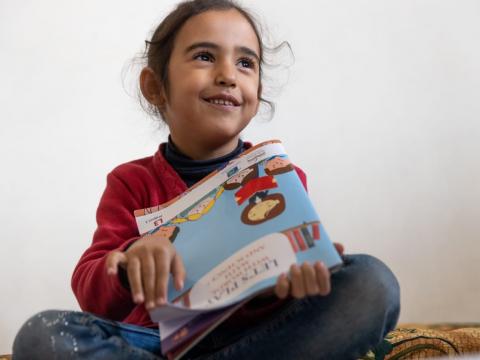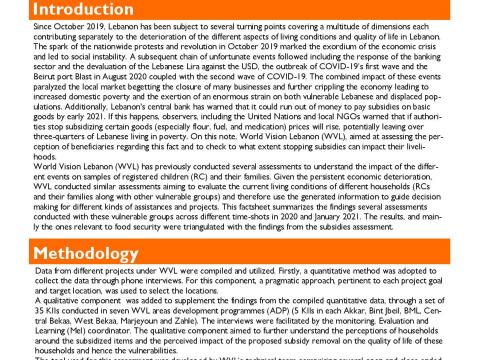Barriers and Facilitators for Lebanese Children’s Engagement in Child Labour
DownloadChildren are the cornerstone of any society as such they need to be trained and provided with adequate opportunities to ensure their development, survival and rights on the path to their future as adults. It is often argued that child activity decision making, including schooling, is rooted in financial/economic factors or children’s academic performance. However, evidence indicates that the dynamics of child activity decisions involve parents’ characteristics as well in addition to household and community’s characteristics.
This study serves as an appendage to the cross-sectional research “Caregiver Perceptions and their Influence on Child Education and Labour across Different Areas in Lebanon” conducted by World Vision in Lebanon. It was conducted with the Syrian refugee population and utilized the Barrier Analysis methodology to assess the determinants of child schooling among the Syrian refugee population residing in Lebanon. The study aimed at assessing a target behaviour, namely “Parents of children between the ages of 3 and 15 years ensure that their children regularly attend education opportunities”, based on which participants were screened and classified as either ‘doers’ (those who ensure their children attend education opportunities regularly) or ‘non-doers’ (those who do not ensure their children attend education opportunities regularly). Doers and non-doers were randomly selected. Barrier Analysis standard tabulation sheet was used for the analysis, comparing the frequencies of responses between the two groups along with the statistical significance of the difference.

